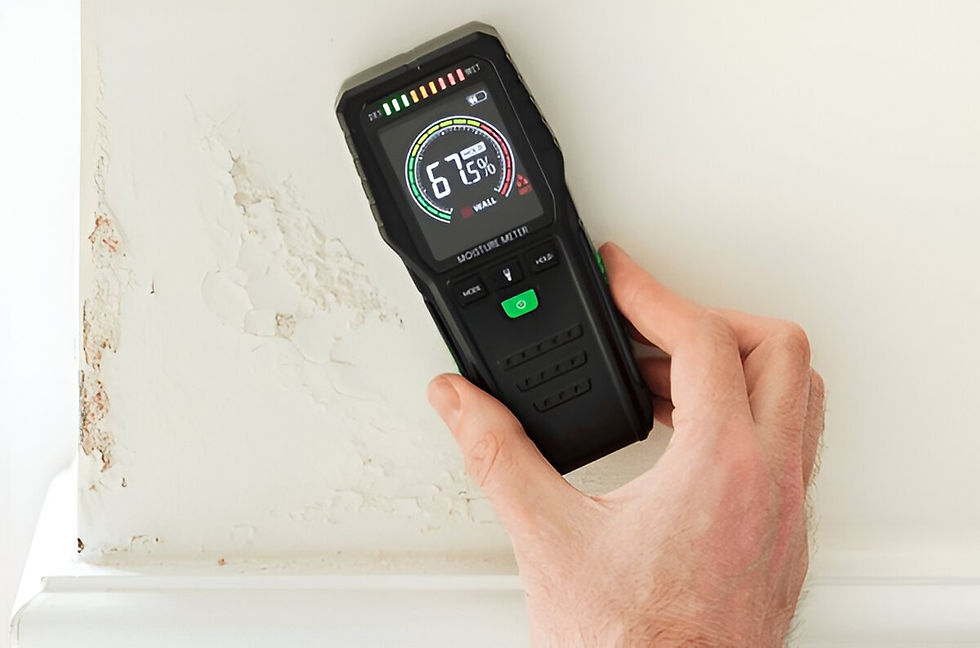The Science Behind Eco-Friendly Anti-Bacterial Mold Solutions in New Brunswick
- mariotovaropo
- May 26
- 4 min read
Mold is a persistent issue that many homeowners face, particularly in regions like New Brunswick, where humidity levels can create an ideal environment for mold growth. Understanding the science behind eco-friendly anti-bacterial mold solutions is crucial for maintaining a healthy living space. This article explores the various aspects of mold, its growth conditions, and effective eco-friendly solutions that can help mitigate its presence without harming the environment.
Understanding Mold and Its Impact
What Is Mold?
Mold is a type of fungus that thrives in damp environments. It reproduces through tiny spores that can easily become airborne, leading to widespread contamination. While mold plays a vital role in nature by breaking down organic matter, its presence indoors can pose significant health risks, including respiratory issues and allergic reactions.
Health Risks Associated with Mold
Exposure to mold can lead to various health problems, particularly for individuals with pre-existing conditions such as asthma or allergies. Common symptoms include:
Coughing and sneezing
Nasal congestion
Skin irritation
Eye irritation
Fatigue
Understanding these health risks underscores the importance of effective mold remediation strategies.
The Role of Moisture in Mold Growth
Mold requires specific conditions to thrive, primarily moisture, warmth, and a food source. In New Brunswick, the combination of high humidity and fluctuating temperatures can create an ideal breeding ground for mold. Identifying and controlling moisture sources is essential for preventing mold growth.
The Science of Mold Growth
The Mold Life Cycle
Mold undergoes a life cycle that includes four stages: spore production, germination, hyphal growth, and sporulation. Each stage presents unique challenges for homeowners trying to manage mold infestations. Understanding this cycle is crucial for implementing effective remediation strategies.
Factors Influencing Mold Growth
Several factors contribute to mold growth, including:
Humidity Levels: High humidity (above 60%) can encourage mold proliferation.
Temperature: Mold thrives in warm environments, typically between 77°F and 86°F (25°C to 30°C).
Food Sources: Mold can feed on various organic materials, including wood, paper, and fabric.
By controlling these factors, homeowners can significantly reduce the likelihood of mold growth.
Eco-Friendly Anti-Bacterial Solutions
The Importance of Eco-Friendly Solutions
Traditional mold remediation methods often involve harsh chemicals that can be harmful to both human health and the environment. Eco-friendly solutions provide a safer alternative, utilizing natural ingredients that effectively combat mold without introducing toxic substances into the home.
Common Eco-Friendly Ingredients
Several natural ingredients have proven effective in combating mold:
Vinegar: A mild acid that can kill many types of mold.
Baking Soda: A natural deodorizer that can also inhibit mold growth.
Tea Tree Oil: Known for its anti-fungal properties, tea tree oil can effectively eliminate mold spores.
Hydrogen Peroxide: A powerful disinfectant that can kill mold and bacteria.
These ingredients can be used individually or in combination to create effective mold-fighting solutions.
DIY Eco-Friendly Mold Solutions
Homeowners can create their own eco-friendly mold solutions using simple ingredients. Here are a few recipes:
Vinegar Spray: Mix equal parts of water and white vinegar in a spray bottle. Spray directly onto moldy surfaces and let it sit for at least an hour before wiping clean.
Baking Soda Paste: Combine baking soda with water to form a paste. Apply it to moldy areas, scrub, and rinse with water.
Tea Tree Oil Solution: Mix one teaspoon of tea tree oil with one cup of water in a spray bottle. Spray on affected areas and do not rinse.
Preventing Mold Growth
Moisture Control Strategies
Preventing mold growth starts with controlling moisture levels in your home. Here are some effective strategies:
Fix Leaks: Repair any leaks in roofs, walls, or plumbing to eliminate moisture sources.
Improve Ventilation: Ensure proper airflow in areas prone to dampness, such as bathrooms and kitchens.
Use Dehumidifiers: In humid climates, dehumidifiers can help maintain optimal humidity levels (30-50%).
Regular Maintenance
Routine inspections and maintenance can help catch mold issues before they escalate. Consider the following:
Check for Water Damage: Regularly inspect areas for signs of water damage or mold growth.
Clean Gutters: Ensure gutters are clean and functioning properly to prevent water from pooling around your home.
Monitor Indoor Humidity: Use a hygrometer to keep track of indoor humidity levels.
Professional Mold Remediation
When to Seek Professional Help
While DIY solutions can be effective for minor mold issues, larger infestations may require professional intervention. Signs that you may need professional help include:
Extensive mold growth (greater than 10 square feet)
Persistent musty odors
Health issues related to mold exposure
Eco-Friendly Professional Services
Many mold remediation companies now offer eco-friendly services that utilize non-toxic products and methods. When selecting a professional service, inquire about their approach to ensure it aligns with your eco-friendly values.
The Role of Certification and Regulations
Importance of Certifications
Choosing certified mold remediation professionals is crucial for ensuring effective and safe mold removal. Certifications indicate that the company adheres to industry standards and best practices.
Regulatory Guidelines
Various regulations govern mold remediation practices to protect public health and the environment. Familiarizing yourself with these guidelines can help you make informed decisions when selecting a remediation service.
Conclusion
Understanding the science behind eco-friendly anti-bacterial mold solutions is essential for homeowners in New Brunswick. By recognizing the conditions that foster mold growth and implementing effective prevention and remediation strategies, you can create a healthier living environment. Whether through DIY solutions or professional services, prioritizing eco-friendly methods ensures that your home remains safe and mold-free without compromising the health of your family or the environment.
For more information about Anti-Bacterial Mold Solutions in New Brunswick, New Jersey please contact:
Business Name: New Jersey Mold Specialist
Address: 92 Bayard St # 203, New Brunswick, NJ 08901
Phone Number: (732) 973-9352
Website: https://njmoldspecialist.com/
Google Map: https://maps.app.goo.gl/kg1JHzNPLm666hW3A





Comments